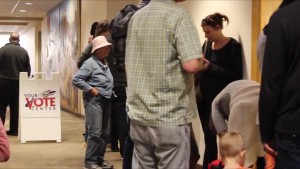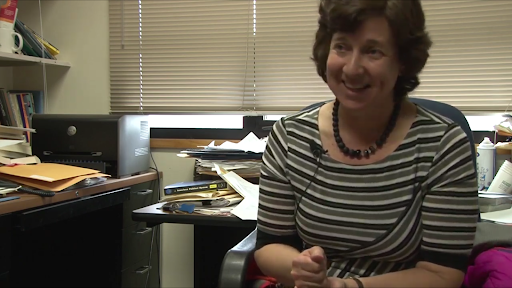New Mexico’s midterm elections have come to a close, as voting results were certified on Nov. 27. Despite heightened concerns about the integrity of the U.S. election system, experts and officials say New Mexico elections went very well.
“The 2018 elections were very good in all aspects. There were issues in different voting sites, but they were all handled, they did not affect the overall outcome of elections,”said Lonna Atkeson, a political science professor at the University of New Mexico.

New Mexico Secretary of State Maggie Toulouse Oliver announced that New Mexico’s 2018 general election amassed over 430,000 voters. That compares to 250,000 early and absentee voters in 2014, and 297,000 in the gubernatorial election in 2010.
Perhaps the most noted dispute in the 2018 election was in the Second Congressional District, in southern New Mexico, over the handling of absentee ballots.
An election audit found no discrepancies. Election auditing is a conducted review, after polls close, to assist with concluding if the votes were adequately and accurately accounted for.
“New Mexicans should be proud, because not every state leverages these types of audits in its electoral process,” said Doña Ana County Clerk Amanda López Askin. “Built-in mechanisms like the voting system check help ensure the integrity of our democracy.”
Approximately 8,500 absentee ballots were counted the day after the election in New Mexico’s Second Congressional District race between Rep. Yvette Herrell (R-N.M.), and water attorney Xochitl Torres Small. Those ballots played a key role in Torres Small’s victory. She became the first Democrat to win that district in over 10 years.
On election night, the race was mistakenly called in favor of Herrell by an Albuquerque pollster. But it turned out he was unaware of the 8,500 absentee votes yet to be counted. Torres Small ended up claiming the seat over Herrell with an edge of some 3,700 votes.

Photo by Dani Prokop.
Herrell’s campaign filed for investigation of the midterm election absentee ballots impounded at the Doña Ana County Clerk Office. Starting from Nov. 27, she had the following 10 days to inspect the ballots. If needed, she is permitted to extend the 10 days of impoundment, but not beyond Dec. 26.
The Doña Ana County voting system check took place on Nov. 26, 2018 at the Bureau of Elections Warehouse.
Meanwhile, there were three tightly-contested New Mexico House races in House District 20, House District 22 and House District 63.
During the State Canvassing Board meeting on Nov. 30 — the board commanded a recount of District 20. The final official results declared Democrat Abbas Akhil victorious over incumbent Republican Jim Dines by a margin of 114 votes.
For the 2018 elections, all New Mexico eligible voters got a ballot in their mailbox, allowing them to vote through mail. All they had to do was mark their voting option, and return it. Postage was covered.
A study published in 2017 by the U.S. Election Assistance Commission found that voting by mail increased the voter turnout in local special elections by an average of 7.6 percent.
For the first time in over 50 years, the State of New Mexico used a uniform voting system, meaning that the voting process was organized in a way that every person in the state goes through the same voting process.

“We wanted a uniform and consistent process so a voter from the Doña Ana county is treated the same as a person from Bernalillo county and with the same equal protection under the law. You are striving for that as an election administrator, ” Atkeson said.
According to the Santa Fe New Mexican and election officials, Russian hackers targeted voting systems in 21 states during the 2016 elections. New Mexico was not among them. New Mexico, once again did not face a threat of a system hack.
“It hasn’t come up as much (hacking) as it did in 2016,” Atkeson said. “These actions by foreign governments have not been as active as they were in the past.”
Sergio Guerrero and Joshua Grajeda can be contacted on Twitter @SergioGreports and @JoshGeee_.